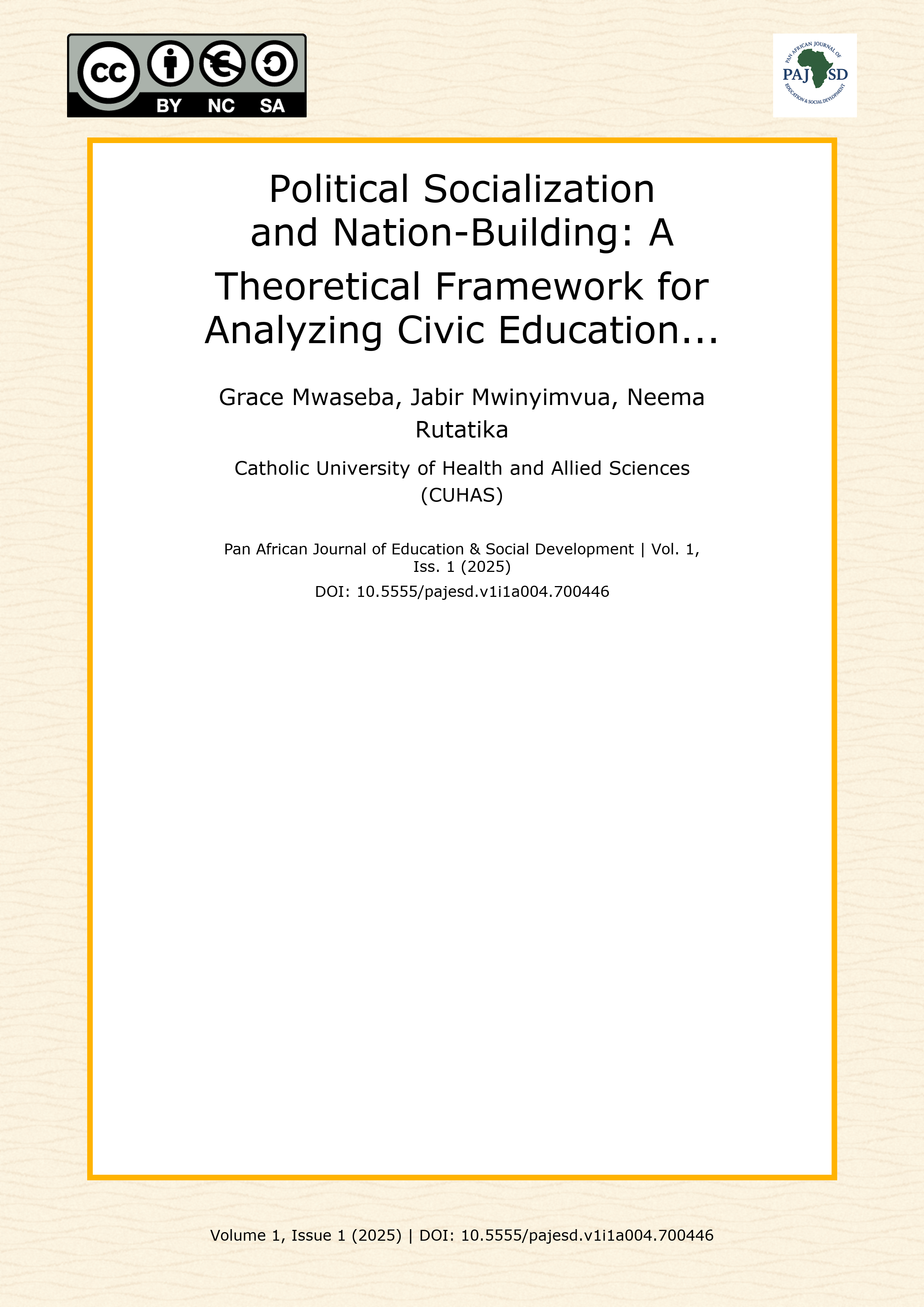Political Socialization and Nation-Building
A Theoretical Framework for Analyzing Civic Education Curricula in Tanzania and Rwanda
Keywords:
Political Socialization, Civic Education, Nation-Building, East Africa, Curriculum Analysis, Comparative Education, Post-Colonial EducationAbstract
This theoretical framework article addresses the imperative of analyzing the political socialization of youth through civic education within the distinct nation-building projects of Tanzania and Rwanda. The central problem is the lack of a robust, context-specific theoretical lens for comparatively examining how state-mandated curricula in these two East African nations construct notions of citizenship, national identity, and political participation for the younger generation. The article employs a qualitative, comparative case study approach, situated within an interpretivist paradigm, to deconstruct the ideological underpinnings and pedagogical assumptions of official civic education curricula. It argues that while both countries utilize education as a primary agent of political socialization to foster national unity and a specific civic ethos, their approaches are theoretically divergent. Tanzania’s model is theorized as continuing a legacy of *Ujamaa*-informed developmental nationalism, emphasizing collective responsibility and social cohesion. In contrast, Rwanda’s post-genocide framework is conceptualized as a form of strategic, state-led transformational nationalism, prioritizing civic duty and a singular vision of national identity as prerequisites for security and development. The significance of this framework lies in its contribution to decolonizing educational research by centering African political philosophies and historical contexts. It provides scholars and policymakers with analytical tools to critically assess how educational systems shape the political consciousness of youth, with profound implications for the future of democratic engagement and sustainable peace on the continent.

Downloads
Published
Versions
- 2025-10-11 (2)
- 2024-01-15 (1)
Issue
Section
License
Copyright (c) 2025 PAJESD

This work is licensed under a Creative Commons Attribution 4.0 International License.
